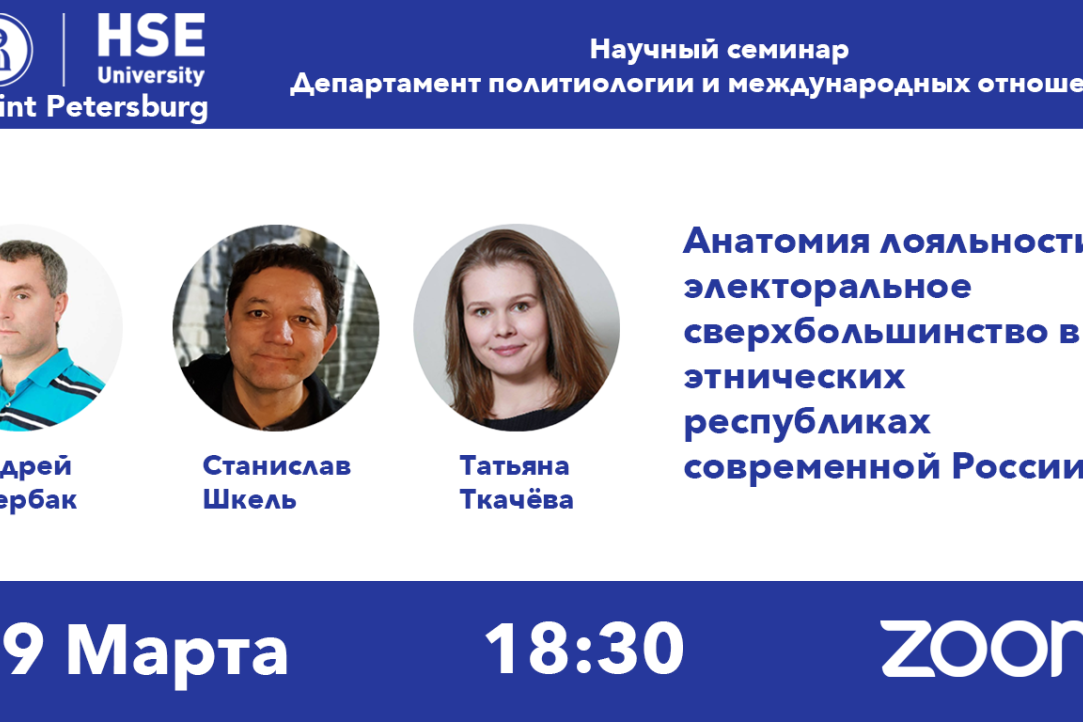- A
- A
- A
- ABC
- ABC
- ABC
- А
- А
- А
- А
- А
- HSE Campus in St. Petersburg
- Saint-Petersburg School of Social Sciences
- Department of Political Science and International Affairs
- News
- The HSE Department of Political Science invites you to the Department of Political Science and International Relations Research Seminar, which will be held on Friday, April 9, 2021 at 6.30 pm (MSK) .
-
Departament
- About the Department
- Faculty and Staff
-
Annual Conference “The October Readings”
-
More About the Conference
-
Upcoming Conference
-
Archive
-
-
Academic Seminar
-
Upcoming seminars
-
Previous Seminars
-
198068 Saint Petersburg
Griboyedov channel embankment, 123, Room 324
t. +7 (812) 644-59-11, plus 61415
The Department was created on the basis of the Department of Politics, which was established in 2005. The main purpose of the department is to provide today’s students with professional training in the fields of political analysis and sociopolitical engineering, as well as in creating a special creative atmosphere that allows for the formation and development of a society of political experts who are capable of not only carrying out professional research, but also proposing and implementing solutions to relevant Russian and international problems.
 Terrorism and Political Contention. New Perspectives on North Africa and the Sahel Region
Terrorism and Political Contention. New Perspectives on North Africa and the Sahel Region
Atanasiu M., Besenyő J., Denisova T. S. et al.
Springer, 2024.
Semushkina E. S., Scherbak A. N., Zubarev N.
Social Sciences. 2024. Vol. 55. No. 2. P. 22-48.
Kabanov Y., Anna Kuzmenko.
In bk.: Social Computing and Social Media. HCII 2024. Lecture Notes in Computer Science, vol 14705. Cham: Springer, 2024. P. 107-119.
OxonCourts Judicial Studies Graduate Colloquium. OxonCourts Judicial Studies Graduate Colloquium. University of Oxford, 2019

The HSE Department of Political Science invites you to the Department of Political Science and International Relations Research Seminar, which will be held on Friday, April 9, 2021 at 6.30 pm (MSK) .

Dear colleagues,
We are pleased to invite you to the Department of Political Science and International Relations Research Seminar, which will be held on Friday, April 9, 2021 at 6.30 pm (MSK) .
Speakers: Andrey Shcherbak, Stanislav Shkel and Tatiana Tkacheva (Higher School of Economics, St.Petersburg, Russia)
Title: Anatomy of loyalty: electoral super-majority in the ethnic republics of contemporary Russia
Ethnic republics in Russia invariably demonstrate higher electoral support for the incumbents than the average for Russia. At the seminar, speakers will present the results of a study on the nature of political loyalty in Russian regions. Unlike most previous studies, the authors test existing theories on the basis of opinion polls data, rather than official electoral statistics. This makes it possible to include in the analysis the ethnic characteristics of voters at the individual, rather than regional or local levels. The statistical analysis is complemented by the study of qualitative data in the form of expert interviews and materials from three focus groups conducted in the villages of Bashkortostan and Tatarstan. According to the results, the political loyalty of the Russian republics is determined not by cultural specifics, but by the nature of the settlement structure. Ethnic republics include a relatively high proportion of the agrarian population, a significant part of which is represented by ethnic minorities. This overlap of ethnic and rural segments determines the reproduction of the electoral super-majority. The study also made it possible to clarify the role of the ethnic factor in contemporary electoral processes, which also affects the reproduction of political loyalty not only to the heads of the republics, but also to non-ethnic federal political actors. However, its influence is also determined rather by the political and institutional characteristics of the ethnic republics than by the cultural features of the titular ethnic groups.
Working languages are Russian / English
Seminar will be online via Zoom.
The link to join Zoom: https://zoom.us/j/93982797701?pwd=YWdzYXRpcGRPR3BFR3RDRENXM2EwZz09
Meeting ID: 939 8279 7701
Password: 209907
If you have questions please contact Stanislav Shkel (sshkel@hse.ru ).
-
https://elearning.hse.ru/en/mooc/
Massive Open Online Courses
-
https://www.hse.ru/en/visual/
HSE Site for the Visually Impaired
-
http://5top100.com/
Russian Academic Excellence Project 5-100
- © HSE University 1993–2024 Contacts Copyright Privacy Policy Site Map
- Edit

